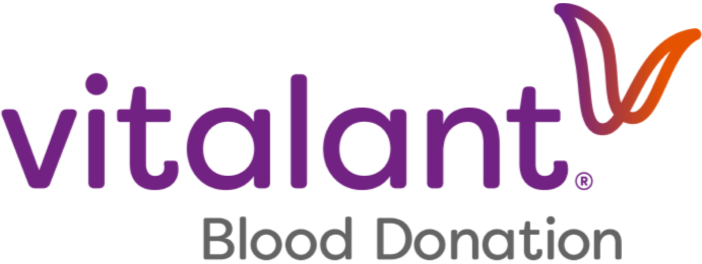You have probably experienced a small cut on your body and noticed how your blood starts clotting to begin the healing process. This is how your body should normally react, thanks to platelets. But when people have certain diseases, like cancer, their blood doesn't clot fast enough and they run the risk of severe bleeding.
Platelets constantly circulate through your body, making internal repairs you don’t even notice. These tiny cell fragments in your blood rush to the surface of your skin when it’s cut or torn to create scabs over wounds.
Platelets also help fight cancer in a big way. And thanks to special machines, Vitalant can collect the platelets in your blood and return the red blood cells and plasma to your body. Your body quickly replenishes the platelets – so quickly that you can usually donate them every 7 days, up to 24 times a year!
How do platelets help fight cancer?
Different diseases and their treatments can lower your platelet count or affect your body’s ability to make platelets. Some cancers, like leukemias (blood and bone marrow cancers), wipe out bone marrow, the part that makes your blood cells and platelets. Chemotherapy can also damage the bone marrow and lower the number of platelets your body makes.
Without platelet transfusions, cancer patients’ treatments may be delayed because of the risk of internal bleeding or other complications. More than 50% of all platelet donations help cancer patients.
Leukemias, the most common cancers in children, are largely curable thanks in part to help from volunteer platelet and blood donors, according to Dr. A. Kim Ritchey, pediatric hematologist/oncologist at UPMC Children’s Hospital of Pittsburgh.
“Fifty years ago, leukemia in childhood and adolescence was a universally fatal disorder. Today, 80 to 90 percent of children and adolescents are cured,” he said.
Platelet donations are constantly needed
The National Cancer Institute estimated 1.8 million cancer cases would be diagnosed in 2020. If only a fraction of those patients needed platelet transfusions, that’s thousands of platelet donations. Platelet donors are needed every day of the year to meet this patient need.

And cancer patients who need platelets often need multiple platelet transfusions.
During his nine-month battle with acute myeloid leukemia, David received 22 units of platelets. And he was just one of 100 cancer patients in the hospitals where he was treated.
How do I donate platelets?
Just like when you make a whole blood donation, you can make an appointment at any Vitalant donation center to donate platelets. The entire platelet donation process takes about 2.5 to 3 hours, so bring a good book, or plan to watch a movie or show on our TVs or your own electronic device.
Platelet donors must meet the same eligibility requirements as whole blood donors and must stop taking aspirin or aspirin-containing products two days prior to donating.
You can donate platelets no matter your blood type, although people with types A-positive, B-positive, AB-positive and AB-negative are most commonly recommended for platelet donation. Platelet transfusions to patients do not need to be matched by blood type. A patient can receive platelets from a donor of any blood type.
Donated platelets are fragile. They must be transfused within a week of donation. Every 15 seconds, a patient in the U.S. needs platelets, so a continuous supply of platelet donations must be collected.
Find out more about the platelet donation process here.
Published by: Taitia S. — Vitalant Contributor

